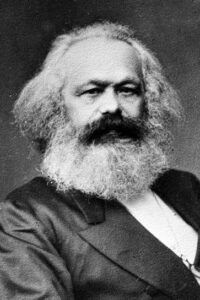“For if Joshua had given them rest, then He would not afterward have spoken of another day” (Hebrews 4:8).

While the Biblical Scriptures contain many commands and directives, they also encourage us to think, consider, and meditate upon the meaning and application of God’s Word. Unlike the view held by Karl Marx, the 19th century political theorist who once associated religious belief with opium use, (1) the Scriptures do not compel us to become mind-numbed spiritual automatons. Instead, they encourage us to meditate upon God’s Word and act upon what we read there.
We can find one such example in the message of Psalm 1:1-2: “Blessed is the man Who walks not in the counsel of the ungodly, Nor stands in the path of sinners, Nor sits in the seat of the scornful; But his delight is in the law of the Lord, And in His law he meditates day and night.” We find another example in the book of the Biblical prophet Isaiah: “I, the Lord, invite you to come and talk it over. Your sins are scarlet red, but they will be whiter than snow or wool” (Isaiah 1:18 CEV).
Hebrews 4:8 encourages us to adopt a similar approach as we follow along with our author’s thought process: “If Joshua had really given the people rest, there would not be any need for God to talk about another day of rest” (CEV).
This passage refers to Moses’ successor Joshua and how he led the ancient Israelites into the Promised Land. That brought an opportunity for the people of Israel to begin life anew in “…a good land—a land with brooks, streams, and deep springs gushing out into the valleys and hills; a land with wheat and barley, vines and fig trees, pomegranates, olive oil and honey” (Deuteronomy 8:7-8).
Thus, Hebrews 4:8 serves as the next stop on a journey that began earlier in verse six and continued into verse seven. That journey will reach its concluding destination in the next verse, but for now, we can pause to consider the following question. If Joshua’s leadership had fully enabled the people of ancient Israel to secure God’s intended rest, why then would Israel’s king David advise others to secure it later in Psalm 95?
Therefore, we can view Hebrews 4:8, Psalm 95:7-8, and the Biblical book of Joshua as data points that direct us towards a reasoned conclusion: the rest that came as a result of Joshua’s leadership was only a foreshadowing of the rest that God intends for us.
Image Credit: John Jabez Edwin Mayal, Public domain, via Wikimedia Commons https://commons.wikimedia.org/wiki/File:Karl_Marx_crop.jpg
(1) Marx. Karl Critique of Hegel’s Philosophy of Right, Retrieved 23 February, 2022 from https://www.marxists.org/archive/marx/works/1843/critique-hpr/intro.htm

